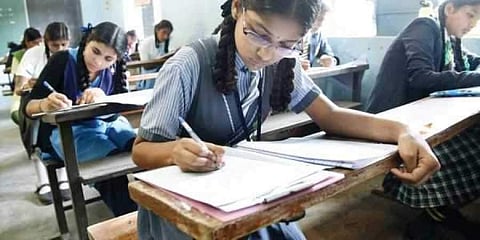

It is ironic that just as voting is starting in the world's biggest democratic elections, the CBSE has announced that they will be dropping three chapters on democracy. The CBSE reportedly released a circular stating that the students will not be evaluated on three chapters from the Social Science curriculum in the 2020 board exams. According to reports, the decision is believed to have been taken as part of an exercise undertaken by the MHRD for curriculum rationalisation.
The CBSE has stated that the the chapters will be assessed in the periodic tests but will not figure in the board examination. The chapters are titled Democracy and Diversity, Popular Struggle and Movements and Challenges to Democracy and figure in the Democratic Politics Book. While the CBSE has claimed that the students will be assessed in periodic tests, if students know that the chapters are being dropped, there's little hope the chapters would be taken seriously.
The chapters discuss the struggle for democracy in countries like Bolivia and other popular struggles. The students also learn about the different ways in which people are influenced politically, from lobbyists to social reformists. One of the chapters also discusses political reform — how political reform may lie more at the State level than at the national level, how the question of who will implement that reform is as important as what the reform is.
The chapter on Democracy and Diversity speaks about the Civil Rights Movement, Apartheid and Black Power. It makes comparisons of the Black Movement in the United States of America to the Dalit Movement in India. It raises asks students to question the need for the caste system to be treated the same way as race issues are treated in other parts of the world. If even has a tiny cartoon on how a young girl finds a lot of similarities with a Pakistani girl and questions if that makes her an 'anti-national'. It tackles subjects like identities and its significance in the Indian democracy.
Some of the questions in the CBSE board exams based on thee chapters, in the last few years have been:
Explain three factors that are crucial in deciding the outcome of politics of social divisions.
'Democracies lead to peaceful life among citizens'. Explain
Name a political party that grew out of a movement
Analyse the role of popular struggles in the development of a democracy
How do pressure groups and movements strengthen democracy?
'It is difficult to to reform politics through legal ways'. Explain
'Political parties are a necessary condition for a democracy'. Explain.
Speaking to Hindustan Times, professor Satvinderpal Kaur from the department of education had said, "Chapters such as ‘popular struggle’ and’ movements and challenges to democracy’ have their own importance in making of the child understand past struggles. The child’s knowledge of these topics must be holistically evaluated. What is being done is not healthy and will have a harmful long-term effect.” She also told HT that the alteration is unplanned and haphazard, "For the purpose of political socialisation understanding of democratic setup is minimum, without it what is the value of social science?"
The students in Class 10 this year might not be eligible to vote in these elections but will ignoring the chapters this year, impact their decisions in the next elections? After all, they are our future.
